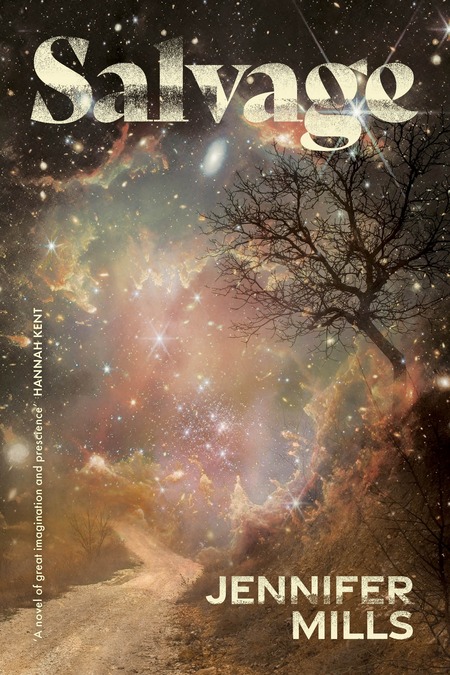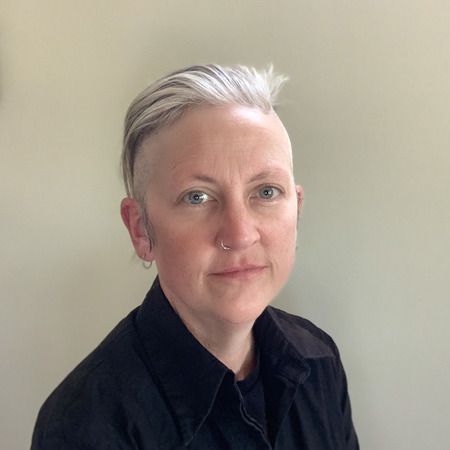(courtesy Pan Macmillan Australia)
What would happen if the world “ended” in slow motion?
In other words, rather than the big bang and boom of the usual fall of civilisation that we have seen documented in all kinds of apocalyptic storytelling, what if the cataclysmic hell of the end of the world was a gradual descent into ecological decline and societal reassembly that feels like a lukewarm photocopy of a photocopy?
Reading the brilliance novel penned by Jennifer Mills, Salvage, you are presented with just a slowly destructive scenario and while it might not exhibit the searing tabloid bombast of its compulsively entertaining, suitably alarmist cousins, it carries an immense emotional impact that absolutely leaves you remembering the figure at the centre of its meditatively intense narrative.
And just as importantly, what this future, Jude has had to give up and what she lost to survive in a world full of people scraping by, of others locked away in a pristine society that seems to ignore that the world is a shadow of its former non climate change-ravaged self, and of a strata which erroneously believes, as it turns out, that it can defy the odds felling everyone else.
Moving seamlessly and thoughtfully between the past and present and with one eye on a future that is shaky at best but which might involve some personal redemption from a prison of Jude’s onetime actions, Salvage is an immensely beautiful work of fiction with some saliently dark home truths settling uncomfortably within its taut storytelling structure.
Her hands felt rough and dry against the wheel. Useful hands, with strength in them. Good for some things. Honest work has been enough for her. It should be enough for her still.
This is one of those end of the world novels that focuses rewardingly hard on the humanity of the downfall of society as we once knew it, with some fearsomely good but slowly unfurled world-building at its heart, but which also acknowledges that for many tenacious people the end is still somewhat off in the future and that in the interim, they have to find a way to exist.
The people of the Freelands live a hardscrabble but community-focused existence, a series of loosely connected communities that have foregone the trappings of the more sleekly authoritarian political entity known as the neighbouring Alliance, which could still gobble them up if it so chose but which sits quietly by for the moment, and who count Jude among their number.
Jude is a middle-age woman who contributes to the socialistic society of the Freelands by driving her truck, likely the only diesel-electric hybrid left in existence, on all kinds of errands, whether it’s ferrying refugees who wash up on its ever-eroded shores to safe havens in the hinterlands. pr taking goods to and fro.
While she’s a valued member of the community in which she currently lives, and has close friends including Ali, a fellow member of the queer community with whom she shares a long past, Jude is always at the margins, close to community but never actively part of it, the world as she knows it now held at arm’s length for reasons she won’t divulge.
(courtesy Pan Macmillan Australia)
But then one day, as she finds herself growing closer to a nurse named Nora, who may be the small promise of a future that isn’t emotionally locked down and where Jude is known for all her truths and flaws rather an anonymous woman on the little-known margins, an escape pod falls to the ground, bringing with it a reckoning that Jude, is she’s truly honest with herself, can’t avoid.
Her long-lost sister Celeste, who went to live on a space station held in orbit at Lagrange point five – this is one of five orbits between the Earth and Moon where objects can stay in stable orbits if certain conditions are met – where a very select number of super rich people went to escape oblivion on Earth, has fallen back to the planet she once fled, and only Jude knows who she is.
Why Jude didn’t join her sister and why she fled into an anonymity on a planet which has seen far better days is explained with prose that is both extraordinarily beautiful but also nuanced and thoughtful and very grounded.
You slowly learn over the novel, as the various timelines converge in a final act which is action-packed but ruminative as well – that’s not an easy balance but Mills pulls its off with aplomb – why Jude didn’t want sanctuary on what proved eventually to be a doomed space station and why she lost a great deal to keep her feet firmly planted in the diminished soil of planet Earth.
Jude wanders over, stands beside her, not too close. The sky is hazy from fires; she can’t see the stars.
‘Made these for my kids, but I won’t get to see them yet,’ she says, clicking the lid off. ‘Might as well, eh?’
And just like that, Jude falls for her.
Dancing between the past and the present, Salvage does a superbly immersive job of exploring the realities of Jude’s present while explaining how her past came to shape it, with Mills bringing together revelatory information at just the right moment and in such a way that the progress in our understanding of who Jude is and why certain events are happening the way they are is less blunt forced narrative trauma and more a rich layering of emotionally bonding new knowledge.
It’s a slow and moving journey that asks whether its enough to just survive and get by or whether there is a chance to live and to be known and to care for others even in a world which seems to actively fight against anything growing beyond the bare bones of getting by.
Plenty of apocalyptic stories have asked the same question but I would wager few have done it with such elegance, insight and poetic evocation as Salvage which fills its beautiful words with some impactfully dark but ultimately freeing truths.
Full of loss and heartbreak and a sense that the world is slipping through the plucky fingers of those hanging onto a planet actively trying to get rid of them, Salvage is a rare and precious gem of a novel that ask hard questions and reveals dark and troubling things while never once taking its eyes on how beautiful connection and found family can be, even in the worst of circumstances, and that anonymity, while perhaps necessary in some ways for survival, does not serve anyone well, least of all Jude, if we want to truly live, thrive and be known.

